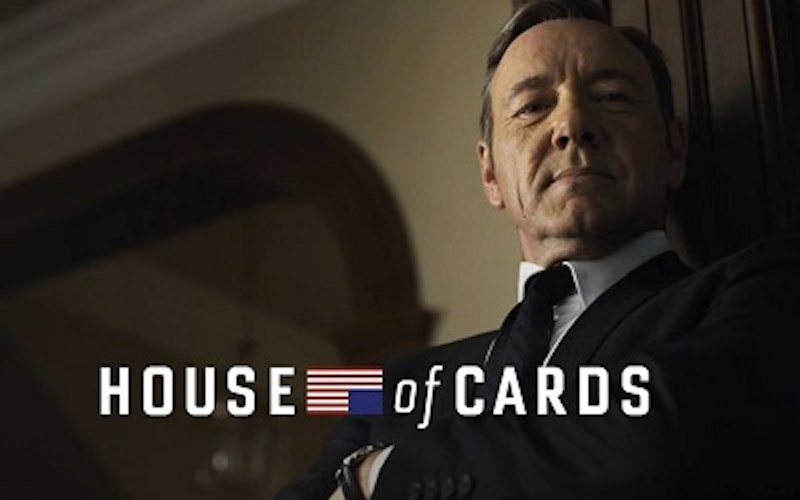
TV
House of Cards and Isaiah 14
As the second season of House of Cards begins Friday, it’s worth remembering that the Netflix political drama last left us with a prayer.
In last season’s finale, Frank Underwood, the politician who has schemed his way through a twisted plan of revenge, enters a church, gets on his knees and looks skyward. “Every time I’ve spoken to you, you’ve never spoken back,” he says. “Although, given our mutual disdain, I can’t blame you for the silent treatment. Perhaps I’m speaking to the wrong audience.” He then looks to the ground. “Can you hear me?” he implores. “Are you even capable of language or do you only understand depravity?”
Finally, Underwood concludes to the camera: “There is no solace above or below. Only us. Small. Solitary. Striving. Battling one another. I pray to myself, for myself.” As he exits the church he lights a votive candle in an array of lights. Then he blows them all out.
Underwood, played by Kevin Spacey, doesn’t just inhabit the darkness; he creates it. And it’s darkness, along with the dirty deeds done in it, that haunts House of Cards. Set in Washington, D.C., the show follows the devious dealings of this veteran Democratic congressman, who feels betrayed by the newly elected president’s failure to appoint him Secretary of State. Embittered by the rejection, Underwood and his wife (Robin Wright) set the course for a new destination: the president’s cabinet.
Underwood doesn’t just inhabit the darkness; he creates it.
Through sardonic fourth wall-breaking asides to the audience, Underwood gives a play-by-play of his master plan as it takes shape, turning viewers into co-conspirators of his Machiavellian machinations. His ambitious plot soon ensnares Zoe (Kate Mara), a young and roguish reporter, and Peter (Corey Stoll), a freshman congressman with a sordid past.
The show’s pilot established D.C. as a place where the high-minded ideals of politicians and journalists belie a shadowy, noir-like underworld. Compromise - both political and moral - will come, like it or not. Underwood is a key player in this world, using his persuasive prowess to bend people his way in his insatiable quest for power.
But every one of Underworld’s power plays has a cost. Taking a step toward his sinister goals often means trampling whichever friend or foe is in his way. Peter was the most tragic victim of Underwood’s unchecked ambition in the first season. It was Zoe, Underwood’s former obsequious bedfellow, who by the end of the season broke free from his stranglehold and began, however unknowingly, to shine a light onto the darkness.
The teaser trailer for the second season shows Underwood taking the oath of office as the new Vice President, but he clearly learned nothing on his climb to the top. “One heartbeat away from the presidency and not a single vote cast in my name,” he says. “Democracy is so overrated.” Underwood mocked heaven and hell back in that season one finale. Yet if he had opened the book next to him then, he would have found a passage in Isaiah 14 that served as a word of warning to the king of Babylon, a ruler whose pride and arrogance would lead to his downfall:
How you have fallen from heaven,
morning star, son of the dawn!
You have been cast down to the earth,
you who once laid low the nations!
You said in your heart,
“I will ascend to the heavens;
I will raise my throne
above the stars of God;
I will ascend above the tops of the clouds;
I will make myself like the Most High.”
But you are brought down to the realm of the dead,
to the depths of the pit.
Frank Underwood is his own conquering hero, but he now has much more to lose. House of Cards looks to continue the ongoing story of darkness versus light. Will Zoe expose Underwood’s deceit? Or will he climb even higher up the ladder? If pride, as they say, comes before the fall, then we’re in for quite a ride.
Topics: TV, Culture At Large, Arts & Leisure, News & Politics, Politics